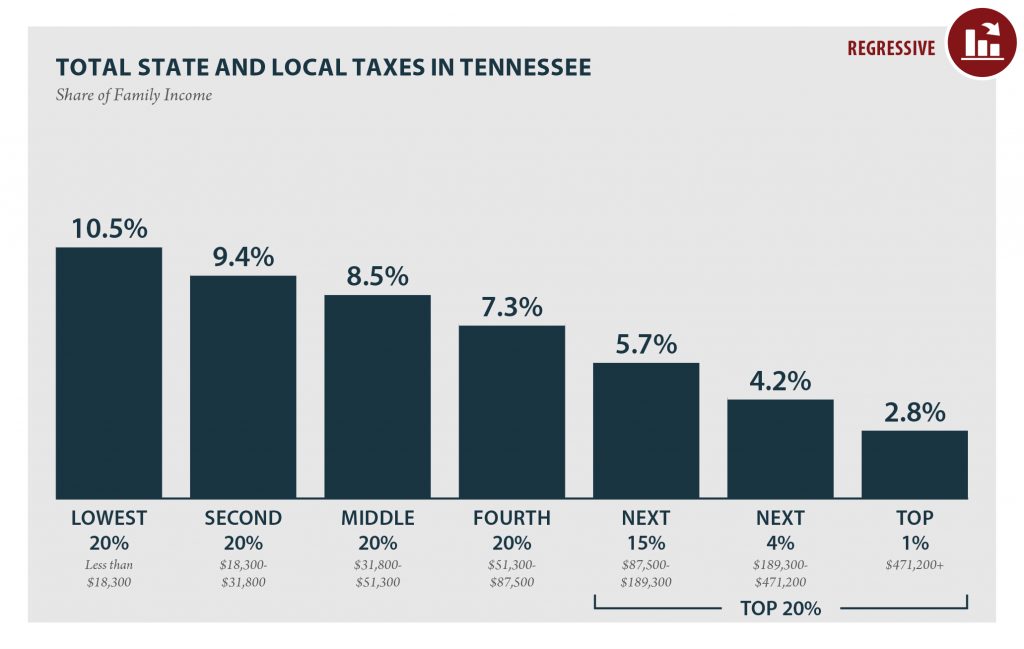This week as Americans celebrate Martin Luther King Jr.’s messages of resisting oppression and fighting for progress, state policymakers can look to some bright spots where tax and budget debates are bending toward justice. Among those highlights, Hawaii leaders are considering improvements to minimum wage policy, early childhood education, and affordable housing; Kansas Gov. Laura Kelly is seeking to reduce sales taxes applied to food and restore the state’s grocery tax credit; and advocates in Connecticut and Maryland are pushing for meaningful progressive tax reforms.
— MEG WIEHE, ITEP Deputy Director, @megwiehe
Major State Tax Proposals and Developments
- Organizers against the recent tax changes enacted in UTAH report that they’ve collected enough signatures by yesterday’s deadline to put a repeal initiative on the ballot in November. Official numbers will be confirmed later this week and the signatures verified in the coming weeks. — LISA CHRISTENSEN GEE
Governors’ Budget Proposals and State of the State Speeches
- In his State of the State address, HAWAII’s Gov. David Ige discussed a joint economic package with the House and Senate that would gradually increase the state’s minimum wage, add pre-K classrooms, and build more affordable homes.
- KANSAS Gov. Laura Kelly delivered her State of the State Address and released her 2020 budget proposal last week, identifying Medicaid expansion, infrastructure spending, a food tax reduction, and property tax cuts among her top priorities. Specific tax provisions of note include applying the sales tax to digital products (including streaming services like Netflix) and reinstating a refundable food tax credit.
- MAINE’s Gov. Janet Mills discussed the economy, healthcare, funding for child welfare caseworkers, and more money for the state’s rainy-day fund in her 2020 State of the State address.
- MASSACHUSETTS Gov. Charlie Baker delivered his address this week, as well. Identifying goals of reducing carbon emissions, making changes to the state’s health care system, and funding transportation.
- NEW MEXICO Gov. Lujan Grisham gave her 2020 State of the State Address yesterday, highlighting a budget proposal that increases spending for education and healthcare and the legalization of recreational marijuana.
- More addresses are scheduled this week in DELAWARE, SOUTH CAROLINA, and WISCONSIN, and next week in ILLINOIS, MICHIGAN, NORTH DAKOTA, and UTAH.
State Roundup
- ALASKA lawmakers began their legislative session this week. Familiar issues, including the size of the Permanent Fund Dividend, potential budget cuts and new taxes, are up for debate.
- A bill passed out of committee in CALIFORNIA proposes to raise the corporate income tax on firms with over $10 million in net income as the ratio of pay between CEOs and other workers increases. A similar bill passed out of committee in 2014 but failed to win passage in the full Senate.
- There is a lot of tax talk in COLORADO, but everyone has their own ideas about what they would like to see done, with Gov. Jared Polis advocating for a permanent cut to the income tax rate paid for by closing loopholes, progressives interested in paving the way for the adoption of a graduated rate structure, and conservative lawmakers interested in the permanent rate cut but without the loophole closures.
- CONNECTICUT Voices for Children identified a proposal to help reverse income and wealth inequality while providing tax cuts to up to 90 percent of residents. The plan includes higher rates on households earning more than $1 million annually, along with a surcharge on investment income.
- DELAWARE lawmakers may increase a school property tax subsidy for seniors, and are also looking at larger changes such as means-testing it.
- A FLORIDA bill to tax bottled-water companies for extracting and selling the state’s water was proposed and quickly postponed due to “industry objections.”
- Two commentators in MARYLAND lay out some promising ways the state can raise the funds it needs to make recommended reforms to its education system. But Gov. Larry Hogan, despite those education needs and the state projecting a $3.7 billion shortfall over the next five years, is nonetheless pushing for a major income tax cut for retirees.
- NEBRASKA’s OpenSky Policy Institute reviews some of the problems with a recent proposal to reduce property taxes by increasing state aid, but without identifying a sustainable funding source.
- NEVADA education advocates released the second half of their proposal to raise revenue for struggling schools: in addition to their first proposal to raise taxes on gaming, they will also seek to raise $1 billion by increasing the state sales tax rate by 1.5 cents.
- SOUTH DAKOTA school organizations are pressing Gov. Kristi Noem and legislators to follow through on a promise to improve school funding that was made when the state increased the sales tax rate a half-cent specifically for that purpose in 2016.
- One TENNESSEE lawmaker is proposing a two-month sales tax holiday for groceries, a bizarre Frankenstein of a proposal that combines two problematic ideas–sales tax holidays and grocery taxes–instead of finding a real solution to the fact that the state relies far too heavily on consumption taxes and low-income families to fund shared priorities.
- In an effort to keep young workers in the Green Mountain State, VERMONT’s Gov. Phil Scott is expected to propose a state income tax exemption for workers age 18 to 26 in his upcoming budget.
What We’re Reading
- Commemorating Martin Luther King Jr. Day, the Center on Budget and Policy Priorities reminds us how racial justice and state tax policy are intertwined.
- Leading thinkers Joseph Stiglitz, Todd Tucker, and Gabriel Zucman join forces to make a provocative case in Foreign Affairs entitled “The Starving State: Why Capitalism’s Salvation Depends on Taxation.”
- Changing demographics and pressures on state budgets point to the need to reevaluate generous tax breaks for seniors.
- What are the tax implications when workers are replaced by robots? Lower tax revenues for governments and a smaller pool contributing payroll taxes for Social Security and Medicare. In this context, talk of a “Robot Tax” heats up.
- The Economic Policy Institute weighs in on David Brook’s commentary, asserting to the contrary that there is in fact a class war.
If you like what you are seeing in the Rundown (or even if you don’t) please send any feedback or tips for future posts to Meg Wiehe at [email protected]. Click here to sign up to receive the Rundown via email.





